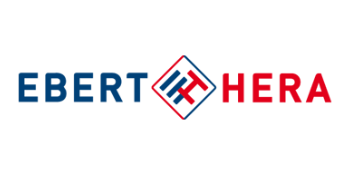On a mission to empower the development of the materials of the future
On a mission to empower the development of the materials of the future
On a mission to empower the development of the materials of the future
We equip our customers today
with the tools to create the materials of tomorrow
We equip our customers today
with the tools to create the materials of tomorrow
We equip our customers today
with the tools to create the materials of tomorrow
We strive for greater innovation
The materials in use today will soon become obsolete, falling short of new performance demands and upcoming environmental regulations. At Osium AI, we equip our customers to meet these evolving challenges by accelerating their materials innovation. Our solution leverages data and AI to enable industry leaders to optimize experimentation, unlocking new possibilities for enhanced performance and sustainability.
Greenhouse gas lifecycle emissions for bio-based materials are 45% lower compared to their fossil counterparts
Over 70% of researchers fail to replicate experiments of others
Over 55% of the data generated in research labs is unstructured or described as dark data – not being used to derive insights
The per capita EU's material footprint is considered not sustainable and above the global average
Greenhouse gas lifecycle emissions for bio-based materials are 45% lower compared to their fossil counterparts
Over 70% of researchers fail to replicate experiments of others
Over 55% of the data generated in research labs is unstructured or described as dark data – not being used to derive insights
The per capita EU's material footprint is considered not sustainable and above the global average
Greenhouse gas lifecycle emissions for bio-based materials are 45% lower compared to their fossil counterparts
Over 70% of researchers fail to replicate experiments of others
Over 55% of the data generated in research labs is unstructured or described as dark data – not being used to derive insights
The per capita EU's material footprint is considered not sustainable and above the global average
Greenhouse gas lifecycle emissions for bio-based materials are 45% lower compared to their fossil counterparts
Over 70% of researchers fail to replicate experiments of others
Over 55% of the data generated in research labs is unstructured or described as dark data – not being used to derive insights
The per capita EU's material footprint is considered not sustainable and above the global average
We strive for greater innovation
The materials in use today will soon become obsolete, falling short of new performance demands and upcoming environmental regulations. At Osium AI, we equip our customers to meet these evolving challenges by accelerating their materials innovation. Our solution leverages data and AI to enable industry leaders to optimize experimentation, unlocking new possibilities for enhanced performance and sustainability.
Greenhouse gas lifecycle emissions for bio-based materials are 45% lower compared to their fossil counterparts
Over 70% of researchers fail to replicate experiments of others
Over 55% of the data generated in research labs is unstructured or described as dark data – not being used to derive insights
The per capita EU's material footprint is considered not sustainable and above the global average
Greenhouse gas lifecycle emissions for bio-based materials are 45% lower compared to their fossil counterparts
Over 70% of researchers fail to replicate experiments of others
Over 55% of the data generated in research labs is unstructured or described as dark data – not being used to derive insights
The per capita EU's material footprint is considered not sustainable and above the global average
Greenhouse gas lifecycle emissions for bio-based materials are 45% lower compared to their fossil counterparts
Over 70% of researchers fail to replicate experiments of others
Over 55% of the data generated in research labs is unstructured or described as dark data – not being used to derive insights
The per capita EU's material footprint is considered not sustainable and above the global average
Greenhouse gas lifecycle emissions for bio-based materials are 45% lower compared to their fossil counterparts
Over 70% of researchers fail to replicate experiments of others
Over 55% of the data generated in research labs is unstructured or described as dark data – not being used to derive insights
The per capita EU's material footprint is considered not sustainable and above the global average
We strive for greater innovation
The materials in use today will soon become obsolete, falling short of new performance demands and upcoming environmental regulations. At Osium AI, we equip our customers to meet these evolving challenges by accelerating their materials innovation. Our solution leverages data and AI to enable industry leaders to optimize experimentation, unlocking new possibilities for enhanced performance and sustainability.
Greenhouse gas lifecycle emissions for bio-based materials are 45% lower compared to their fossil counterparts
Over 70% of researchers fail to replicate experiments of others
Over 55% of the data generated in research labs is unstructured or described as dark data – not being used to derive insights
The per capita EU's material footprint is considered not sustainable and above the global average
Greenhouse gas lifecycle emissions for bio-based materials are 45% lower compared to their fossil counterparts
Over 70% of researchers fail to replicate experiments of others
Over 55% of the data generated in research labs is unstructured or described as dark data – not being used to derive insights
The per capita EU's material footprint is considered not sustainable and above the global average
Greenhouse gas lifecycle emissions for bio-based materials are 45% lower compared to their fossil counterparts
Over 70% of researchers fail to replicate experiments of others
Over 55% of the data generated in research labs is unstructured or described as dark data – not being used to derive insights
The per capita EU's material footprint is considered not sustainable and above the global average
Greenhouse gas lifecycle emissions for bio-based materials are 45% lower compared to their fossil counterparts
Over 70% of researchers fail to replicate experiments of others
Over 55% of the data generated in research labs is unstructured or described as dark data – not being used to derive insights
The per capita EU's material footprint is considered not sustainable and above the global average
How did we get there?
How did we get there?
Being a Materials Scientist herself, our CEO experienced the difficulty of developing new materials and chemicals throughout her research. She noticed the same pain was shared by all the researchers around her as the process to find new materials seemed outdated. She was convinced that revamping this process of R&D in materials was essential.
Our CTO spent several years working with industry leaders in the field of Materials Science to help them improve their processes. She observed there was still a lot to be done in materials R&D and she saw AI and software as powerful tools to streamline and improve materials development.
Our founders sensed that no current tool was powerful enough to fulfill the needs of materials and chemicals industry leaders. Therefore, they leveraged their years of deep expertise in AI and chemistry to build a proprietary technology suited to the field of materials discovery and development.
Being a Materials Scientist herself, our CEO experienced the difficulty of developing new materials and chemicals throughout her research. She noticed the same pain was shared by all the researchers around her as the process to find new materials seemed outdated. She was convinced that revamping this process of R&D in materials was essential.
Our CTO spent several years working with industry leaders in the field of Materials Science to help them improve their processes. She observed there was still a lot to be done in materials R&D and she saw AI and software as powerful tools to streamline and improve materials development.
Our founders sensed that no current tool was powerful enough to fulfill the needs of materials and chemicals industry leaders. Therefore, they leveraged their years of deep expertise in AI and chemistry to build a proprietary technology suited to the field of materials discovery and development.
Being a Materials Scientist herself, our CEO experienced the difficulty of developing new materials and chemicals throughout her research. She noticed the same pain was shared by all the researchers around her as the process to find new materials seemed outdated. She was convinced that revamping this process of R&D in materials was essential.
Our CTO spent several years working with industry leaders in the field of Materials Science to help them improve their processes. She observed there was still a lot to be done in materials R&D and she saw AI and software as powerful tools to streamline and improve materials development.
Our founders sensed that no current tool was powerful enough to fulfill the needs of materials and chemicals industry leaders. Therefore, they leveraged their years of deep expertise in AI and chemistry to build a proprietary technology suited to the field of materials discovery and development.
About the founders
About the founders
Sarah Najmark
Co-founder & CEO
Sarah Najmark
Co-founder & CEO
Sarah Najmark
Co-founder & CEO
Sarah studied Mathematics, Physics, Chemistry and Computer Science at Ecole Centrale Paris. She led and conducted Materials Science research. She also holds a Master in Science from Stanford University where she conducted and led AI research and taught AI classes. Sarah has deep expertise in AI technologies applied to complex systems as she spent multiple years as a Tech Lead in AI and Product Manager at Google X, the moonshot division of Google. She authored multiple AI patents.
Sarah studied Mathematics, Physics, Chemistry and Computer Science at Ecole Centrale Paris. She led and conducted Materials Science research. She also holds a Master in Science from Stanford University where she conducted and led AI research and taught AI classes. Sarah has deep expertise in AI technologies applied to complex systems as she spent multiple years as a Tech Lead in AI and Product Manager at Google X, the moonshot division of Google. She authored multiple AI patents.
Sarah studied Mathematics, Physics, Chemistry and Computer Science at Ecole Centrale Paris. She led and conducted Materials Science research. She also holds a Master in Science from Stanford University where she conducted and led AI research and taught AI classes. Sarah has deep expertise in AI technologies applied to complex systems as she spent multiple years as a Tech Lead in AI and Product Manager at Google X, the moonshot division of Google. She authored multiple AI patents.
Luisa Bouneder
Co-founder & CTO
Luisa Bouneder
Co-founder & CTO
Luisa Bouneder
Co-founder & CTO
Luisa studied applied Mathematics, Physics, Chemistry and Computer Science at Ecole Polytechnique. She also holds a Master in Science from Stanford University where she conducted and led science-focused AI research. She has hands-on experience in building AI tools for industry leaders thanks to her years of experience working for Materials, Life Science, and Energy industry leaders.
Luisa studied applied Mathematics, Physics, Chemistry and Computer Science at Ecole Polytechnique. She also holds a Master in Science from Stanford University where she conducted and led science-focused AI research. She has hands-on experience in building AI tools for industry leaders thanks to her years of experience working for Materials, Life Science, and Energy industry leaders.
Luisa studied applied Mathematics, Physics, Chemistry and Computer Science at Ecole Polytechnique. She also holds a Master in Science from Stanford University where she conducted and led science-focused AI research. She has hands-on experience in building AI tools for industry leaders thanks to her years of experience working for Materials, Life Science, and Energy industry leaders.
The values we embrace
The values we embrace
The values we embrace
Creativity
We like to think out of the box in order to provide new solutions no one has built before.
Collaboration
We build a multidisciplinary and diverse team and believe the greatest lessons come from interacting with our peers.
Results-driven
We are results-oriented, we build and deliver fast, but with high quality to provide the best value to our customers.
We are results-oriented, we build and deliver fast, but with high quality to provide the best value to our customers.
Audacity
Nothing is too challenging for us. Even the biggest challenges can be divided into smaller problems to be solved.
Nothing is too challenging for us. Even the biggest challenges can be divided into smaller problems to be solved.
Growth mindset
Learning new skills is a gift, we love to grow our skillset over time.
Learning new skills is a gift, we love to grow our skillset over time.
Creativity
We like to think out of the box in order to provide new solutions no one has built before.
Collaboration
We build a multidisciplinary and diverse team and believe the greatest lessons come from interacting with our peers.
Get in touch
Talk to one of our experts and discover how we can help you streamline your end-to-end materials and chemicals development cycles.
Get in touch
Talk to one of our experts and discover how we can help you streamline your end-to-end materials and chemicals development cycles.
Get in touch
Talk to one of our experts and discover how we can help you streamline your end-to-end materials and chemicals development cycles.
We are supported by the best
We are supported by the best
We are supported by the best














